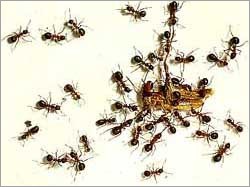DK Society & Beliefs: Societies
Throughout time and in every part of the world, people have organized themselves into groups with common rules of living. A society is the name we give to the organization of such a group.
Certain institutions are found in every society, such as the family, marriage, kin relationships, childcare, and division of work based on age and gender (male and female). The customs that govern social behavior vary greatly worldwide.
All societies are organized around an unequal division of labor and decision-making. Modern societies are expected to provide protection, law and order, economic security, and a sense of belonging to their members. Trying to understand how societies organize themselves is the goal of the SOCIAL SCIENCES.
Societies usually adapt to changes around them, such as the environment or technology. Most change happens gradually, but some major events, such as war or revolution, can completely transform societies.
Social scientists study how people live together in societies. Economists study commercial activities and relate them to human behavior. Sociologists study the social structures of modern societies and relate them to human behavior. Anthropologists focus on the cultures and social structures of traditional societies.
During the Industrial Revolution, rapid economic growth brought enormous social changes. Social sciences evolved to help explain the effects of these changes and to collect social data. Today, social scientists help us to understand complex social issues, from cultural differences to race relations.
For many years, scientists have debated about what has more influence on society: nature or nurture, biology or culture. Sociobiologists argue that genes, which determine our physical characteristics, are responsible for most human behavior. Other scientists argue that culture is mostly responsible.
Physical anthropology looks at human evolution and biological differences, such as genetic variety. Social anthropology looks at the wide range of human languages, beliefs, and behavior, known collectively as culture, especially among local societies. The goal is to reach a better understanding of the “human family” to which we all belong.

